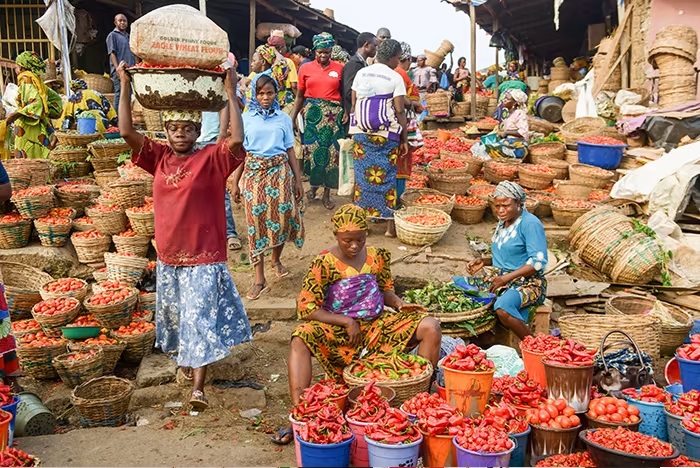
The economic implications of the naira redesign policy of the Central Bank of Nigeria (CBN) are likely going to cut into Nigeria’s gross domestic product (GDP) by three to five percent in the first quarter of 2023, according to Bismarck Rewane, an economic expert.
The circulation of the redesigned N200, N500 and N1,000 notes, which were unveiled late last year by President Muhammadu Buhari, have been marred by chaos across the country. This is due to the insufficiency of the new naira notes that has forced the CBN to extend its January 31 original deadline for the old naira notes to be returned to the banks.
The deadline was extended to February 10. But it was not enough to quell the scarcity of the new naira notes that is increasingly crippling the informal sector.
Register for Tekedia Mini-MBA edition 19 (Feb 9 – May 2, 2026): big discounts for early bird.
Tekedia AI in Business Masterclass opens registrations.
Join Tekedia Capital Syndicate and co-invest in great global startups.
Register for Tekedia AI Lab: From Technical Design to Deployment (next edition begins Jan 24 2026).
With businesses and people across the country reeling on the impact of the policy, no less than five states in Nigeria have dragged the federal government to the Supreme Court, praying the apex court to order the CBN to allow both the old and new naira notes to coexist. The Supreme Court restrained the federal government from enforcing the February 10 deadline until February 15 when the matter will be determined.
Based on the growing economic consequences resulting in chaotic responses from the public, including attacks on banks believed to be hoarding the new notes, Rewane said the policy will bear a negative effect on Nigeria’s GDP in the first quarter of the year.
He said this during his appearance on the 2023 Verdict, Channels Television’s special election programme. The CEO of Financial Derivatives Company Limited said the growing number of hours spent on queues to withdraw money owing to the scarcity of the new notes, will affect the economy negatively in the short term if it is not hastily addressed.
“The impact at the end of the day is that it will affect GDP this quarter, conservatively, by three percent, and aggressively it could reduce GDP in this quarter by five percent, if nothing is done in a hurry,” he stated.
Rewane noted that due to the policy, the number of ATM users in Lagos has grown significantly. He said the number of ATM users in downtown Lagos (Ikoyi, Victoria Island, Lekki) used to be three to four. Midtown (Ebute Meta), the number of ATM users at average times was eight, while one uptown (Alimosho) typically had 15.
He added that this has increased the downtime to get one’s money out of the ATM, which used to be five minutes in Ikoyi, seven minutes in Ebute Meta, and 10 minutes in Alimosho.
“Fast-forward to now. The average number of people in front of an ATM in Ikoyi and Victoria Island is now 40. In midtown Ebute Meta, it’s about 100 people. And in Alimosho, it’s about 600 people.
“The consequences are that flour sales in Lagos are down 30 percent. The rams in Kano are down 70 percent. And cement in Kogi is down 40 percent of sales,” he said.
Proffering solution, Rewane said the federal government needs to do damage control to ensure improved supply of the naira. He said there is a need for the government to print more notes to meet supply demand and rebuild citizens’ confidence.
“We can talk from now to tomorrow. It doesn’t change. We are on the ground. What we need to do is damage control. Damage control means that two aspects: print more money – the mint or whatever it is – overseas to give us all of this supply and instill confidence,” he said.
But the CBN governor Godwin Emefiele had on Friday told the National Council of State (NCS) that the Nigerian Security Printing and Minting Plc (The Mint), is currently under capacity constraints, which means it cannot print adequate new notes to replace the old naira notes.
“The Mint has run out of papers to print N500 and 1,000 notes. They have placed orders with a German firm and De La Rue of the UK (for papers) but they have been placed on a long waiting list, so their orders cannot be met now,” he said after the Council asked the CBN to print more money to meet the supply needs of the new notes.



